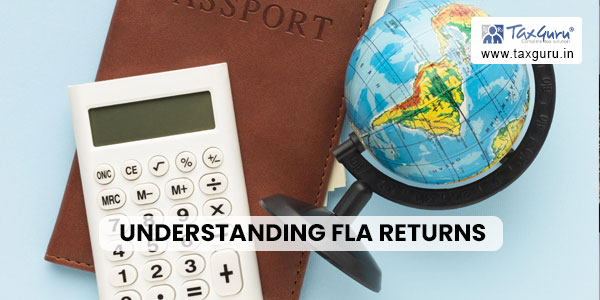In an era of globalized economies, many corporations find themselves dealing with foreign direct investments (FDI) and overseas investments. Ensuring compliance with Foreign Exchange Management Act, 1999 (FEMA) and its directives becomes crucial to these operations. One such requirement is the annual return on Foreign Liabilities and Assets (FLA), necessitated from all companies involved in FDI and/or overseas investments in any given year. This return, due by July 15th of the following year, is a fundamental step towards maintaining FEMA compliance.
FLA returns are crucial when a company accepts foreign direct investment (FDI) or when it engages in overseas investments. Such investments might include joint ventures or wholly-owned subsidiaries, also known as Overseas Direct Investments (ODI). The return must include comprehensive details about these investments and must be submitted online to the Reserve Bank of India (RBI) on their portal (https://flair.rbi.org.in).
Who Should Submit FLA Returns?
The FLA is expected from entities that have received FDI and/or made overseas investments in any of the previous years, including the current one. These entities hold foreign assets or liabilities in their balance sheets and include:
- Companies incorporated under the Companies Act, 2013
- Insurance companies complying with the Insurance Act, 1938
- Banking companies
- Companies involved in electricity supply or generation
- Companies under any special act presently in force
- Certain corporates specified by the Central Government
- Limited Liability Partnerships (LLP) registered under the Limited Liability Partnership Act, 2008
- Other entities such as SEBI-registered Alternative Funds (AIFs), Partnership Firms, and Public Private Partnerships (PPPs)

The FLA Filing Procedure
Entities eligible for FLA returns must file these via an excel sheet before July 15th each year, accounting for FDI or ODI from the previous and current year. The return should be filed by an authorized individual such as the Company Secretary, Director, or Chief Financial Officer, and should comply with the company’s audited accounts. In cases where the accounts haven’t been audited by July 15th, companies should submit provisional data, revising it with audited financial details by September 30th of the same year.
Late Submissions and Exemptions
Missing the due date (July 15th every year) for the return submission is considered a violation of FEMA, attracting a late submission fee of Rs. 7500. However, if an entity hasn’t received any FDI or made overseas investments in any given year, including the current one, and doesn’t hold any outstanding inward or outward FDI or ODI at the end of March of that financial year, they are exempt from submitting the FLA return. Moreover, submitting balance sheets or profit and loss accounts along with the FLA return isn’t necessary.
Conclusion
In an increasingly interconnected business world, navigating regulations like FEMA and its compliance requirements is crucial. Timely and accurate submission of FLA returns is a key aspect of this. While the process may seem daunting, understanding who is required to submit these returns, the procedure, and timelines can simplify the process, ensuring compliance and aiding in seamless overseas investment operations.





